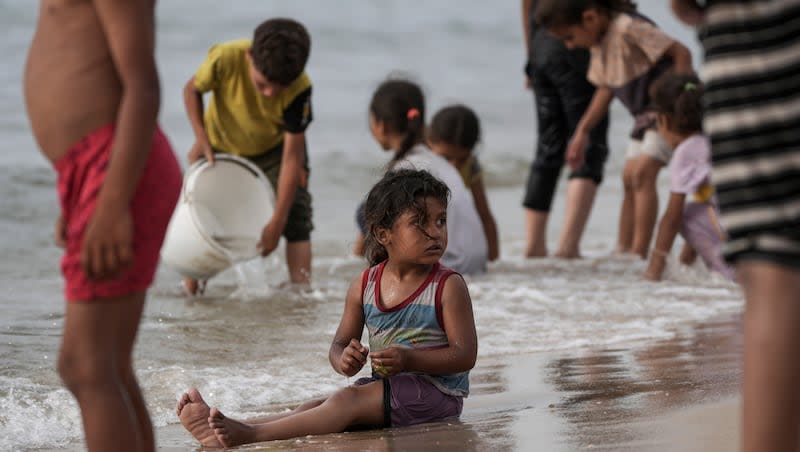World Central Kitchen resuming aid in Gaza

On April 1, Israeli drone strikes hit a convoy in Gaza with World Central Kitchen (WCK) aid workers, killing all seven people inside three vehicles. WCK and other aid organizations ceased their food aid work after the attacks. On Sunday, WCK announced that they would be resuming food aid in Gaza on Monday.
Before the deaths last month, WCK had been providing 62 percent of all international nongovernmental organization aid, distributing more than 43 million meals in Gaza, World Central Kitchen founder and celebrity chef José Andrés told Barbara Raddatz on ABC’s “This Week” in early April.
On Thursday, Andrés led an emotional memorial service in Washington National Cathedral. Andrés — exhibiting a grief so different from his usual ebullient persona — spoke against a backdrop of the flags representing the home countries of the victims, reading the names of the dead and recalling each of their stories, reported the Washington Post. “They were the best of humanity,” he said. “Their example should inspire us to do better, to be better.”
The seven aid workers were Palestinian Saifeddin Issam Ayad Abutaha, John Chapman of Britain, Jacob Flickinger of the United States and Canada, Lalzawmi “Zomi” Frankcom of Australia, James Henderson of Britain, James Kirby of Britain, and Damian Sobol of Poland. Andrés also acknowledged the two hundred other aid workers from other organizations who have also been killed.
Within four days after the attacks, the Israeli military apologized, said it had mishandled critical information and violated the army’s rules of engagement. Two officers were dismissed and three others were reprimanded.
In their statement, the Israeli Defense Forces expressed their “deep sorrow” for the deaths of the seven aid workers and sent condolences to their families and the World Central Kitchen organization. “We consider the vital humanitarian activity of international aid organizations to be of utmost importance, and we will continue to work to coordinate and assist their activities, while ensuring their safety and safeguarding their lives.”
Some 200 aid workers, most of them Palestinians, were killed in Gaza between Oct. 7 and the attack on the World Central Kitchen convoy, according to the United Nations. A New York Times visual investigation showed that, well before the World Central Kitchen attack, six aid groups in Gaza had come under Israeli fire despite sharing their locations with the Israeli military.
During the memorial service last week (which you can watch here), Andrés alluded to Sunday’s announcement that food aid might be resuming. “We take risk because we want to change the world,” he said. “Food is a universal human right — feeding each other, cooking and eating together is what makes us human. A plate of food is a plate of hope, a message that someone, somewhere cares for you.”
In Sunday’s press announcement, Erin Gore, WCK’s chief executive, said: “The humanitarian situation in Gaza remains dire. We are restarting our operation with the same energy, dignity, and focus on feeding as many people as possible.”
The situation in Gaza is dire, with more than a million people facing hunger and even famine. Gore called it the “most life-saving mission in our 14-year organizational history.” WCK has 276 trucks ready to enter through the Rafah Crossing, trucks ready to come via Jordan, and they are exploring options to deliver aid by sea and by air. WCK is also building a third high production kitchen, in addition to the current 68 community kitchens already in Gaza.
WCK’s CEO ended her press announcement with these words:
“We have been forced to make a decision: Stop feeding altogether during one of the worst hunger crises ever... Or keep feeding knowing that aid, aid workers and civilians are being intimidated and killed.”
“These are the hardest conversations, and we have considered all perspectives when deliberating,” Gore added. “Ultimately, we decided we must keep feeding, continuing our mission of showing up to provide food to people during the toughest of times. Wherever there’s a fight so that hungry people may eat, we will be there.”

